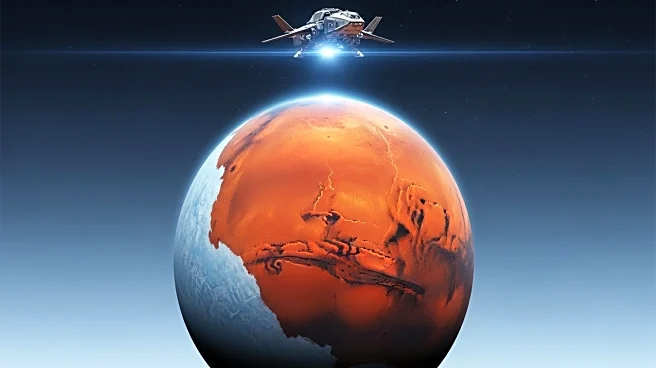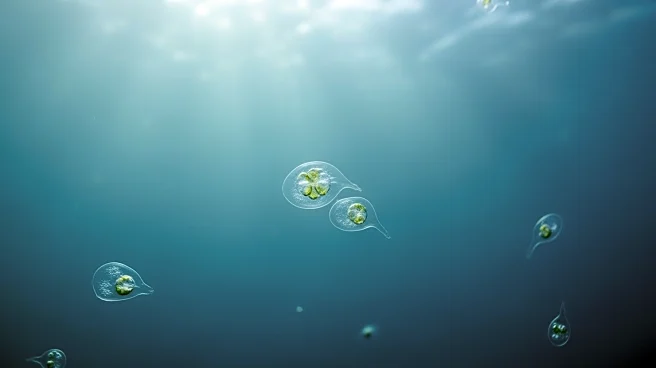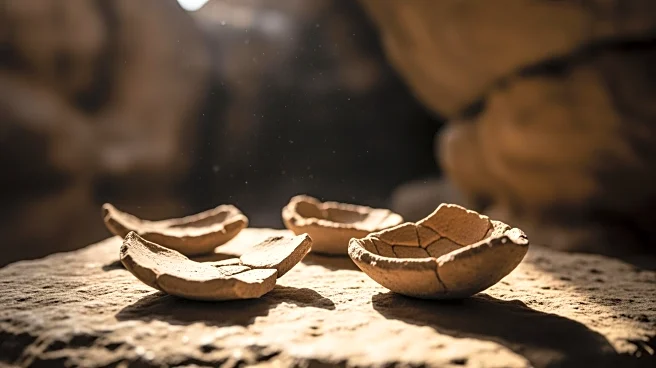What is the story about?
What's Happening?
A recent study has uncovered evidence of multiple ice ages on Mars, revealing that the planet's ice has been diminishing over millions of years. Researchers from Japan, led by Associate Professor Trishit Ruj, examined Martian craters using high-resolution images from NASA's Mars Reconnaissance Orbiter. They identified glacial landforms and correlated them with climate models, discovering that Mars experienced ice ages between approximately 640 and 98 million years ago. The study found that with each cycle, the amount of remaining ice decreased, indicating a gradual desiccation of the planet. These findings provide insights into Mars's geological history and potential resource-rich locations for future missions.
Why It's Important?
The study's findings are significant for future Mars exploration missions, as they identify long-lived ice deposits that could serve as vital resources for astronauts. Access to buried ice could enable the production of drinking water, breathable oxygen, and rocket fuel, reducing the need to transport these supplies from Earth. This knowledge helps pinpoint safe and resource-rich regions for robotic and crewed landings, enhancing mission planning and sustainability. Understanding Mars's past climate and ice distribution also contributes to broader scientific inquiries about the planet's habitability and the potential for life.
What's Next?
Future missions to Mars may prioritize landing sites with access to ice deposits, facilitating resource utilization and reducing mission costs. The study's insights could inform the design of technologies and strategies for extracting and utilizing Martian ice. As space agencies plan for human exploration of Mars, these findings will be integral to developing sustainable living conditions on the planet. Continued research and exploration will further refine our understanding of Mars's climate history and its implications for future colonization efforts.
Beyond the Headlines
The discovery of Mars's ice ages prompts ethical and scientific discussions about the preservation of extraterrestrial environments. As humans prepare to explore and potentially inhabit Mars, considerations about the impact on its natural state and the responsible use of its resources are crucial. The study also highlights the importance of international collaboration in space research, as scientists from different countries contribute to our understanding of the universe. Long-term, these findings may influence policies and guidelines for planetary protection and resource management in space exploration.














